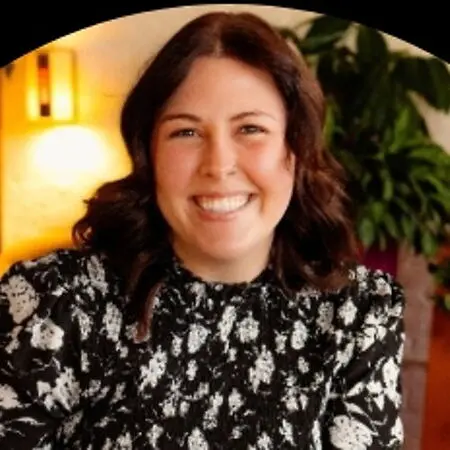Alli Grunkemeyer

Alli Grunkemeyer is a PhD candidate in Biomechanics at the University of Nebraska at Omaha, where her research focuses on haptic perception, stochastic resonance, and sensorimotor function. With a background in biomedical engineering, her work bridges engineering and human movement science to improve rehabilitation outcomes for individuals with motor and sensory deficits, particularly amputees. She brings strong technical expertise in biomechanics, psychophysics, motion capture, and advanced data analysis, allowing her to tackle complex challenges at the intersection of perception, action, and assistive technology.
Alongside her research, Alli is deeply committed to teaching and outreach. As a teaching assistant, she has guided students in anatomy and coding, helping them build confidence in technical skills, and she has designed and led hands-on STEM programs for middle and high school students. She also serves as a Perry Initiative Fellow, leading outreach programs nationwide to inspire young women to pursue careers in engineering and orthopedic surgery. In addition, she has coordinated large-scale building tours of biomechanics lab spaces for local high school students, and she serves on the Westview Advisory Committee, where she helps encourage STEM education and create opportunities for high school students to explore diverse career paths.
Passionate about equity, mentorship, and education, Alli strives to create opportunities for underrepresented students to explore science and engineering. Looking ahead, she hopes to translate her research into clinical and community applications—whether through academia, industry, or nonprofit efforts—while continuing to foster inclusive spaces for the next generation of innovators. Outside of the lab, Alli is a proud dog owner to a three-year-old Bernedoodle named Daisy Jones, and—as her dog’s name suggests—she is also an avid reader.
• BS Biomedical Engineering
• MS Biomechanics
• PhD Candidate Biomechanics and Kinesiology
• University of Nebraska at Omaha- M.S.
• University of Nebraska at Omaha- Ph.D.
• University of Nebraska at Lincoln- B.S.
• NASA Fellowship
• Westview Advisory Committee
• STEM Trail Center UNO
• The Perry Initiative
• Huntington Learning Center
• The Perry Initiative
• Hanger, Inc.
• STEM Trail Center UNO
• Introduce a Girl to Engineering Day
What do you attribute your success to?
I attribute my success to a combination of persistence, curiosity, and the support of mentors and peers who have encouraged me along the way. My background in both engineering and biomechanics has taught me to approach challenges with creativity and resilience, while my passion for teaching and outreach keeps me grounded in the “why” behind my work. Above all, I credit my growth to a commitment to lifelong learning and to creating opportunities for others, which continually inspires me to push my own boundaries.
What’s the best career advice you’ve ever received?
The best career advice I’ve received is to remember that two things can be true. This simple phrase has shaped how I approach both research and life. It reminds me that I can be ambitious in pursuing my career goals while also caring deeply about mentorship and outreach. I can be both a rigorous scientist and someone who values creativity and balance outside of work. In moments of doubt, this advice helps me recognize that I don’t have to fit into a single box—success often comes from embracing the complexity of holding multiple truths at once.
What advice would you give to young women entering your industry?
My advice to young women entering this field is to trust that your perspective is valuable and your voice belongs in every room you step into. Seek out mentors and peers who will support you, but also don’t be afraid to advocate for yourself and your ideas. Most importantly, remember that growth comes from challenges—lean into opportunities that feel a little outside your comfort zone.
What are the biggest challenges or opportunities in your field right now?
One of the biggest challenges in biomechanics and rehabilitation research is bridging the gap between the lab and real-world application—taking cutting-edge discoveries and translating them into tools that directly improve people’s lives. At the same time, this challenge presents a tremendous opportunity: advances in technology, data analysis, and interdisciplinary collaboration are opening doors to innovations in assistive devices and personalized rehabilitation that were unimaginable just a decade ago.
What values are most important to you in your work and personal life?
The values that guide me most are curiosity, equity, and connection. Curiosity drives me to keep asking questions and pushing the boundaries of research. Equity ensures that the work I do creates opportunities for those who are often underrepresented in science and engineering. And connection—whether through mentorship, collaboration, or community—reminds me that meaningful progress happens when we learn and grow together.